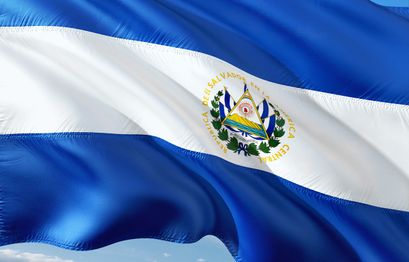El Salvador’s Bitcoin enthusiasts dream of a digital currency free from government meddling. But that’s somewhat next to impossible.
The president, Nayib Bukele, imposed Bitcoin on Salvadorans, some of whom were not willing to accept it. He declared Bitcoin as El Salvador’s national currency in September.
The aftermath of the Bitcoin adoption experiment could help determine if the digital currency is another enrichment tool for El Salvador’s corporations and autocrats. Or, whether it’s aimed at delivering freedom from regulations as proponents envision.
Crypto could become a new technological dystopia
Lane Rettig, a former senior programmer at the Ethereum Foundation, an organization supporting Ethereum technology, said we’re now experiencing a turning point of crypto. “The same technology of freedom could become part of a new technological dystopia”.
Rettig said cryptocurrencies could bring financial liberty in the Central American nation, but the government and corporates threaten to rebel against crypto liberty.
The liberty is similar to the evolution of digital technologies like social media and the internet. But these innovations — despite being designed to liberate information and connect people — are vulnerable to corporations’ manipulation, censorship, and control.
Greater government control of Bitcoin
After years of sidelining cryptocurrencies, governments across the world are now scrambling to get a slice of the rapidly growing $2 trillion crypto industry — as it seeks to seep into people’s lives and disrupt the banking system.
Bukele made cryptocurrency — a highly volatile digital token controlled by a decentralized community — the country’s legal tender.
While Bukele’s strategy is meant to turn the country into an innovation hub fully dependent on Bitcoin, he’s accused of “flying blind” regarding enacting a reliable crypto strategy that incorporates time and trust.
Nearly 93% of Salvadorans including businessmen and international organizations were against Bitcoin adoption, according to a poll conducted by the chamber of commerce.
But that notwithstanding, Bukele-controlled courts and congress forced all vendors to accept Bitcoin — a move that compelled Salvadorans to organize large street protests, denting Bukele’s popular support while at it.
Jorge Hasbún, head of the commerce chamber, said although cryptocurrencies will take over the future, forcing everyone to use and adapt isn’t a wise move.
Ruth López, a lawyer at Cristosal, a non-profit organization based in El Salvador, said Bukele is “playing Russian roulette with public money”. She was responding to the president’s unclear disclosure of where the country’s dollar funds and Bitcoins are (secretly) held. And how much they’re currently worth.
To Bukele, the Bitcoin policy is a state secret. And all information related to the government’s Bitcoin wallet app, Chivo, remains classified.
Contributors











